In HBO’s Food Affair with Mark Wiens, renowned food vlogger Mark Wiens explores the untold stories, personalities, and history behind Singapore cuisine. Over the course of six episodes, Mark deepens his understanding of Singapore’s dynamic food culture, acquainting himself not only with the island nation’s popular street food but its fine dining experiences as well.
In this Goggler exclusive, we sat down with Mark Wiens for an extended conversation* about his love of food and travel, making the leap between Internet vlogging and television production, and what his death row meal would be.
*This interview has been edited for length and clarity.
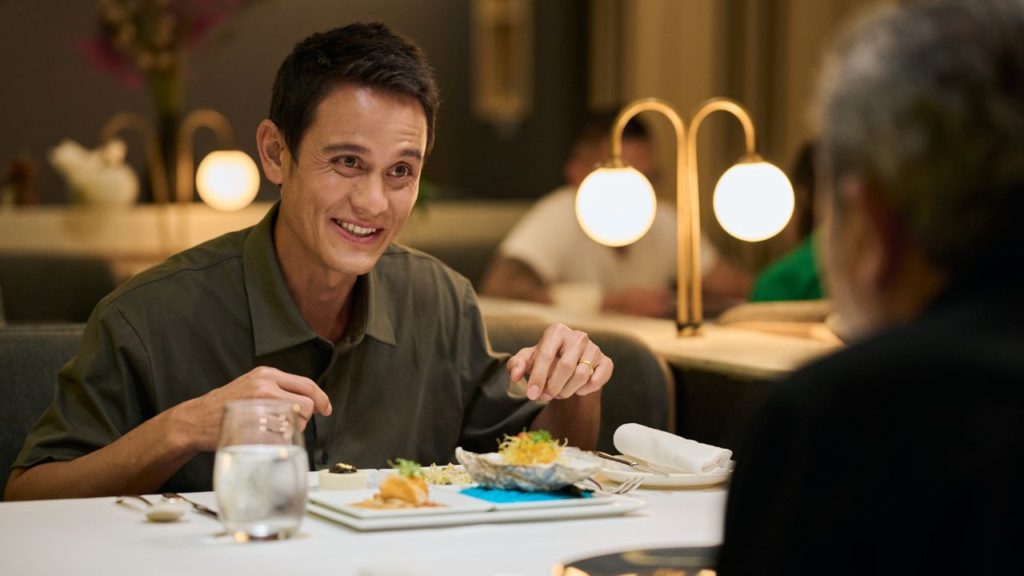
Umapagan Ampikaipakan: Hey, Mark. How’s it going?
Mark Weins: Nice to meet you.
UA: Congratulations on the show. I’ve seen the first two episodes, but I have also admittedly spent an inordinate amount of time on your channel or watching all of your older stuff as well…
MW: Thank you.
UA: … which is, let me tell you, a terrible thing to do in the middle of the night when you have no access to food. So you’ve been doing this for a long time, and just looking at the sheer number of videos you’ve done, it’s clear that you’ve been everywhere and eaten everything. Where did this all start for you? We get a brief introduction in the show about your fascination with food, but when did you decide that this was what you were going to do with your life?
MW: Ever since I can remember, ever since I was a kid, I’ve loved food. I grew up in a family that loves to eat as well. So I was always surrounded by food. And that’s been a passion ever since. But I never knew you could actually do something with it, or that you could turn it into a career, or make a living from anything to do with food. Of course there’s being a chef, but not so much being an eater.
Throughout my schooling and throughout my university, I was always interested in food, and also learning about other cultures and their food. And so I would try different restaurants. I would try a multitude of different food. When I was in university in the U.S., I would go down to Mexico for the weekend with friends just to eat tacos.
But then, I’d go to restaurants and I’d always think that the food is going to be so much better if you go to the source. And that inspired me to travel. I did some traveling in South America. I did some traveling in Southeast Asia. I would take photos of everything. And I thought, what am I going to do with all these photos? I wanted to build something. And that’s when I discovered blogs.
This was back in 2008 and blogs were not that common. So I started a blog. I figured out how to make a website. And I would post photos and some information about the food and places that I visited on the blog. I did that for maybe a year or so before I realized that while taking photos is fun, there is only so much you can show with a still photo. And I wanted to show people the atmosphere around the food. Especially with street food. Which I love. It’s about interaction. It’s about seeing the cooking in front of you or scooping before you eat.
UA: And also just watching you eat and seeing your reaction.
MW: That’s the final component, right? It’s taking that first bite, and your initial reaction, and the emotion that goes with it.
UA: I read a lot of food writing and all of that ends up being quite meditative because you’ve had time to think about it. But watching you take that first bite of chili crab gives me an instant and imeediate reaction to the food.
MW: Sometimes you don’t really know what to expect either. You have zero expectation going in. And I think that makes it more fun as well. Sometimes you’ll be in a country that you’ve never been to. You might not even know what you’re eating. That’s fascinating to me. So yeah, I started making simple videos and it just progressed from there, and I never stopped.
UA: I’m assuming that you were a one man show. In that you were doing all of that production yourself.
MW: When we’re making videos, it’s me and my wife. So when I am sitting down, and my wife is available, she’ll be the one who’s filming me. Other than that, I will often be walking down the street carrying the camera, selfie style.
UA: So what was it like with Food Affair then? Because, hey, you got that HBO money now. There must be a whole team behind every episode.
MW: In terms of style and professionalism, it was totally different. It took on a much bigger production. There are so many different components that went into the making of the series, from the teams that supported it, to the production and the research, and the arrangement of everything. When I make videos, I typically like to keep the storylines pretty simple. But with Food Affair, they really took things to the next level, seamlessly integrating history, with fine dining and hawker food, and making all of it into a real fluid story.
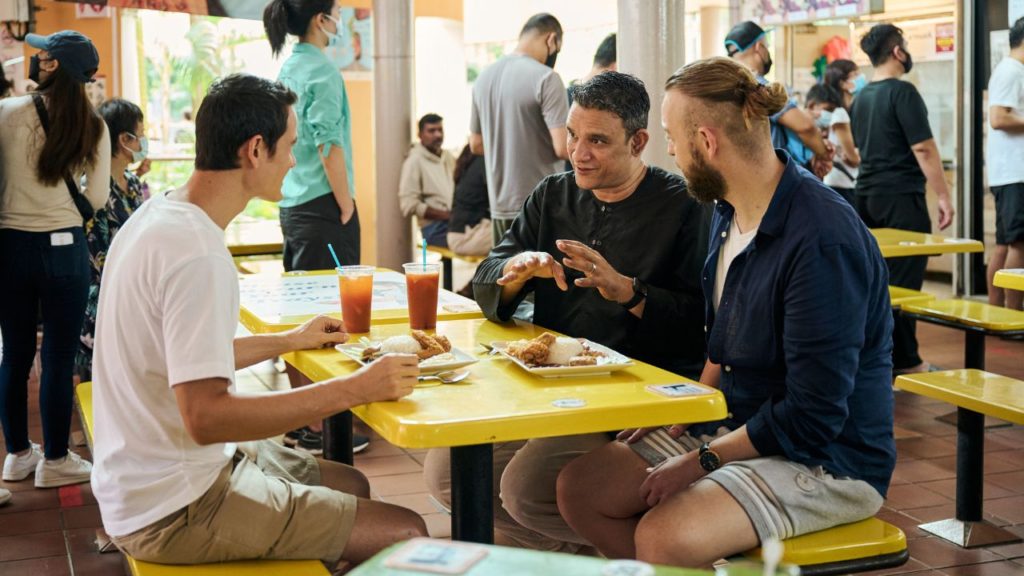
UA: The thing I noticed from the first two episodes is that your style wasn’t lost. That feel was still there despite it being this much more complex production.
MW: Thank you. That’s good to hear. I mean, I think that’s also part of why I was excited to be a part of Food Affair. The production team really did want me to feel comfortable with the whole process. One of the techniques that we used is one that I’m quite comfortable with, and this is speaking directly to the camera. They did a great job for me to be able to take a bite and give my initial reaction directly to the camera, which I was grateful for.
UA: Talk to me about the format of the series.
MW: So the main storyline for each episode is that we would meet with an expert, or someone who is very knowledgeable about a particular cuisine or style of cooking. Then we’d progress onwards to a fine dining chef, learn the story of that chef, and what goes into their cooking. We’d then proceed on to a hawker, or a street food vendor, or a hole in the wall kind of restaurant, which were either a favorite of the chefs, or feature a dish that fit with the theme of the series. It’s usually a combination of both. And that’s how every episode plays out.
UA: The six episodes of this first season is set in Singapore and focused on Singaporean food. You’ve been to Singapore many times, you’ve eaten there, and you’ve done many videos there. Did doing this series lead to any new discoveries at all? Was there anything about Singapore that still surprised you?
MW: I think I learned a lot during this this series. One of the great things was being able to go more in-depth into the history and heritage of food, what that represents, and how that makes up Singapore. And then also hearing about and learning the stories behind each dish. I will admit that I love to eat and try new things, but I don’t always know the personality behind the dish, or all the details all the time. And so it was really rewarding to spend more time focusing on a chef or a hawker stall and really learning the origins of a dish.
UA: I’m curious about the kind of food that you like to eat. Is there anything left on your list that you haven’t tried or that you want to try? Is there a perfect donut somewhere that you’ve heard about that you want to eat? Or the ideal pizza?
MW: I would start off by saying that I’m a very non picky eater.
UA: I suppose you have to be given the work that you do.
MW: I love to eat delicious food. I really love to try a diversity of food. And that’s what excites me. I can’t actually choose what would be a favorite food because I thrive on diversity. I think I think the beauty of the world is in its diversity and being able to eat a different food when you feel like it.
UA: Okay, Mark, I’m going to make it difficult for you. Let me rephrase the question.
MW: Okay.
UA: You’re in prison. You’re on death row. You’ve got one final meal, my friend. What’s it going to be. What is your last meal.
MW: I’m going to take one more step in narrowing it down for you. I’m into anything that’s an overdose of flavor, whether it be South Indian food, or Thai food. I like a lot of Malay food. I like Sichuan food. One of my actual top meals in Thailand is called “jungle food.”
UA: And what is that?
MW: Jungle food is typically very spicy. You’ll find it all over, but especially outside of cities, where you can forage for wild ingredients. It could be something like deer, or some wild meats, or wild fish, but also wild herbs and spices, like turmeric, and galangal, and different types of bitter eggplants. All of that is made into a curry, which is actually called “jungle curry” in Thailand. And it’s spicy, and it’s bitter, and it’s full of herbs and meat. And I just love it. I could eat that every day.
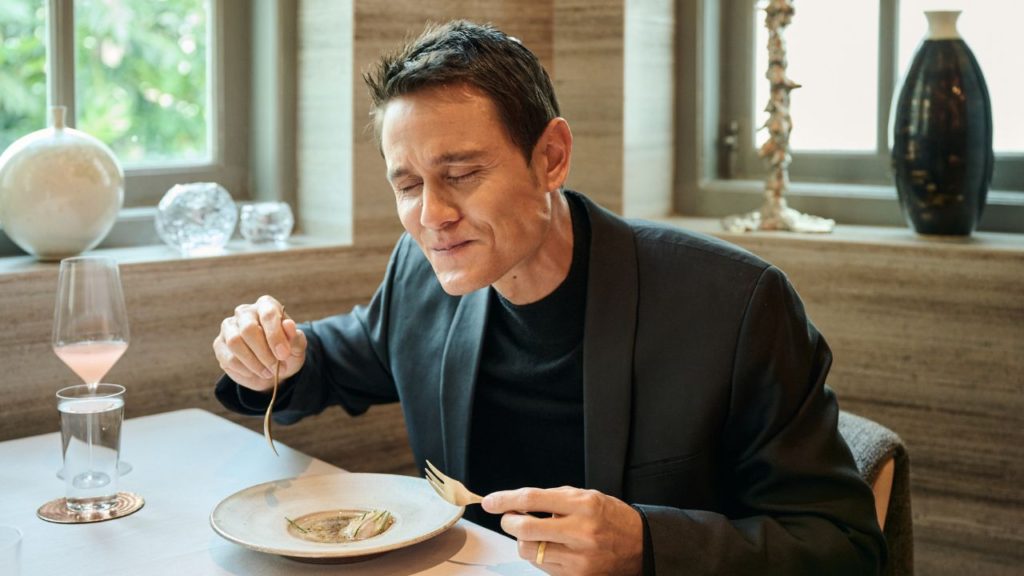
UA: So I’ve got philosophical question for you about food shows in general. Because I’ve always found them to be these very strange things. Here we are watching other people go out, and eat things, and enjoy themselves. Doing things we may never experience. And yet it remains one of the most appealing formats in the world. Do you have a theory as to why we love watching people eat?
MW: Yes actually. I think I do. So you might have a hobby. Maybe your hobby is reading. Or maybe your hobby is football. Or maybe your hobby is singing. We all have different hobbies. Food is very special. First of all, it’s something that we actually need. We need nutrition. We need food to survive. But it’s also something that actually connects us together. It’s something that brings back memories. I think for everyone around the world, no matter what culture you were brought up in, there’s a dish, or a meal, that reminds you of good times, that reminds you of celebration, that reminds you of family and festivals. And so, in that sense, there is no greater single uniting factor than food. I think that’s probably why a lot of us enjoy food, and why a lot of us enjoy watching food shows.
UA: It is common ground. I think no matter where we are in the world, it is the one thing we can connect on.
MW: If you can get into a discussion about food. If you can show genuine respect to a person, even if you’re in a country where the food is different from what you’re used to, you really can open the door to a to a friendly conversation with somebody.

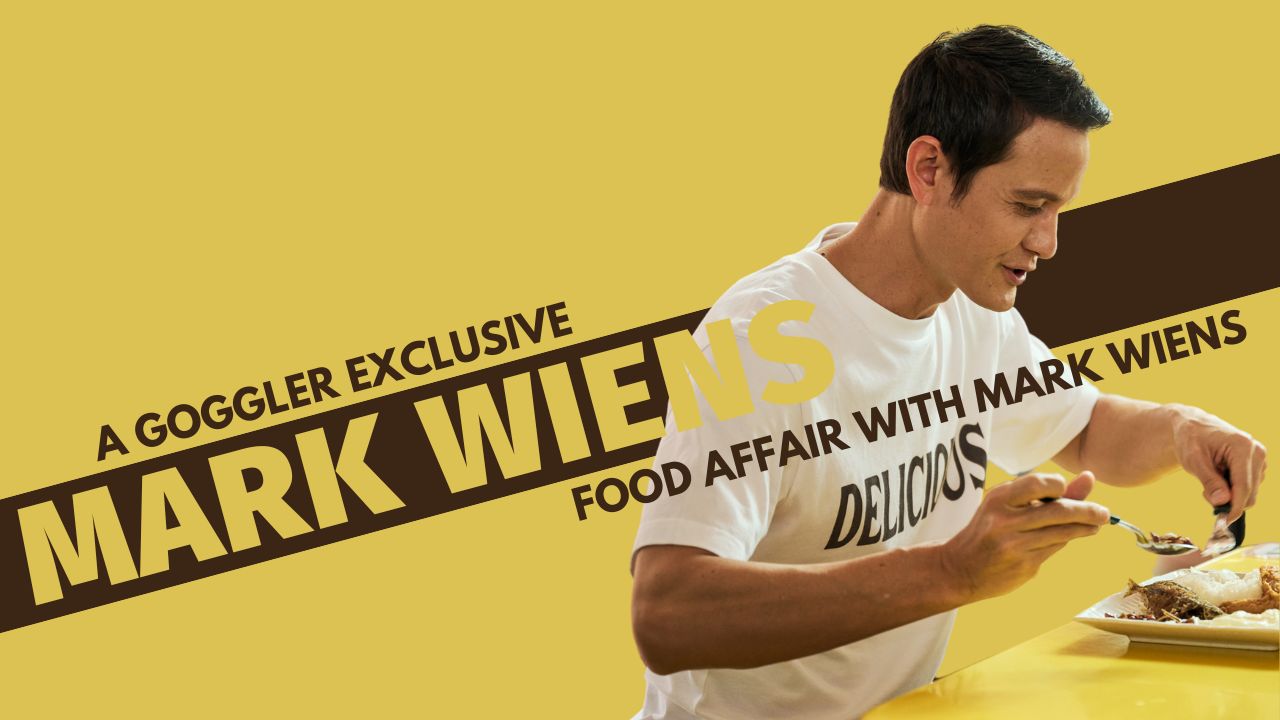


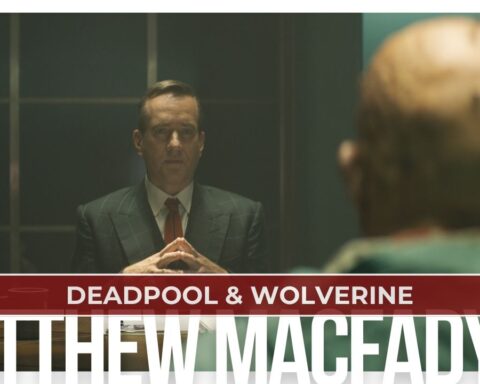
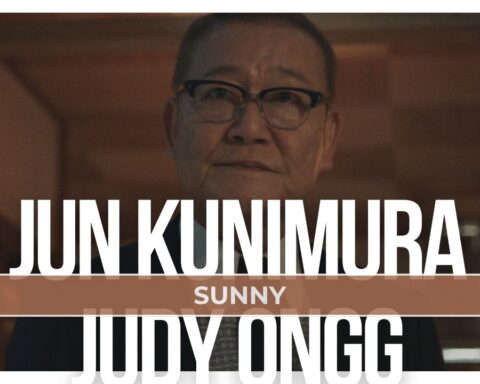
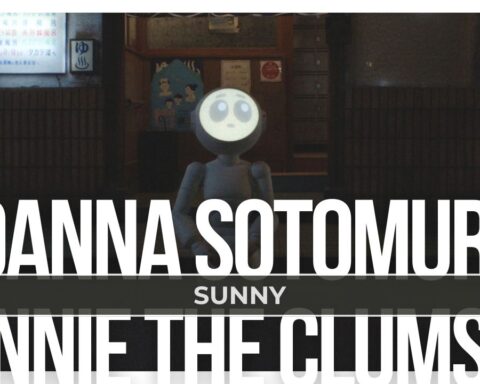
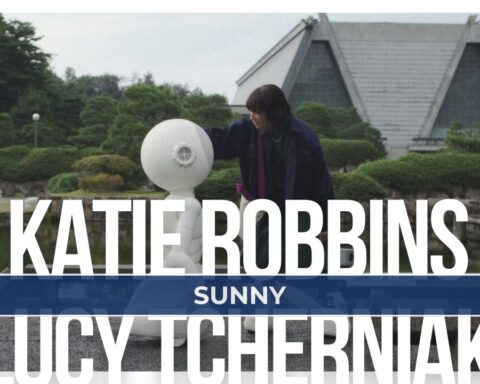
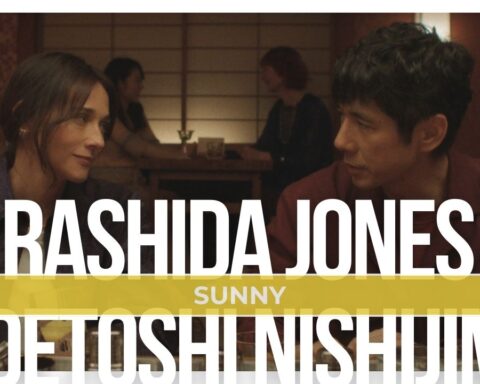
Follow Us